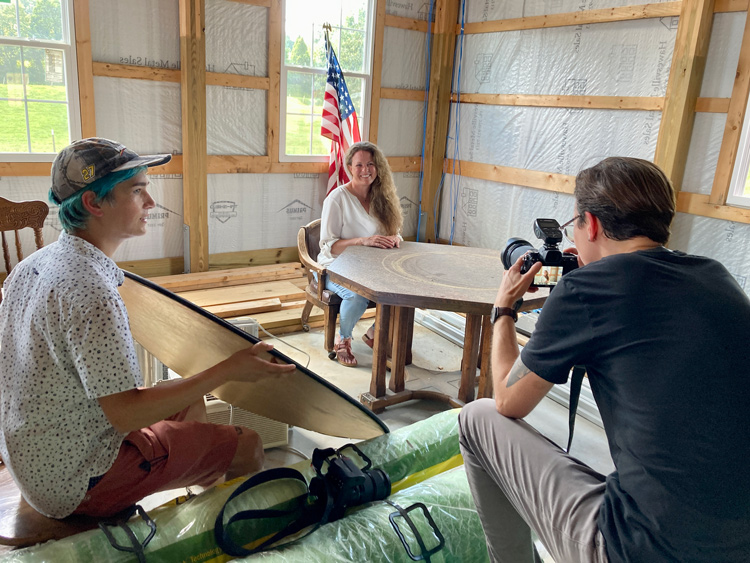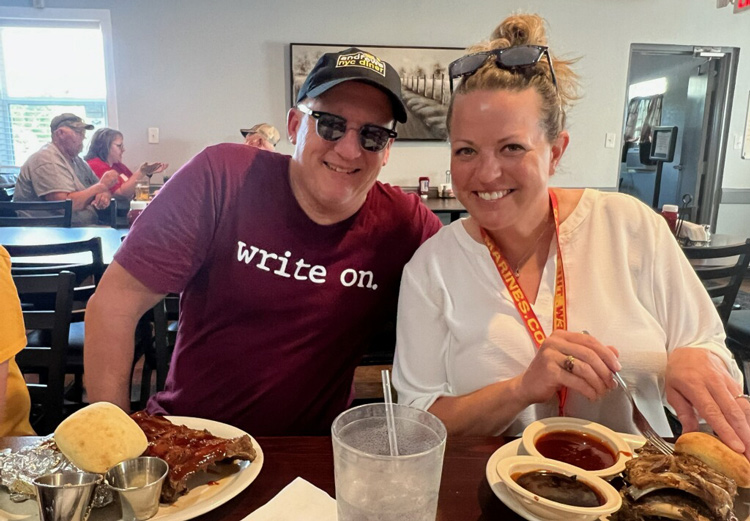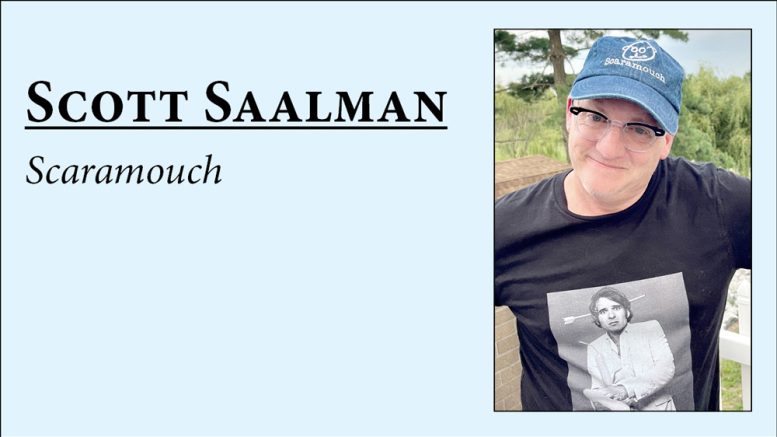It was one of the most devastating incidents in the history of women serving in the military.
I am a stranger to war, but four brave Americans related to me and bearing my surname have served our country.
My great-great-great grandfather Sgt. Christian Saalman was a Union soldier who died of scurvy and thirst at Andersonville, a Confederate prison at Camp Sumter, Ga.
My great-uncle was Maj. Otis Saalman, a POW for three years in the Philippines, where he experienced and survived the horrors of Japanese prison camps, prison ships, and the Bataan Death March.
While Otis was incarcerated, his wife, Lt. Agnes Saalman, was in the Army Nurse Corps and served on the front-line during the Battle of the Bulge. She was among those who liberated the Bergen-Belsen concentration camp, where Anne Frank was among the estimated 50,000 people who perished.
And then there is my cousin Sally Saalman, a Marine who was wounded in a suicide bomb attack in Fallujah, Iraq, on June 23, 2005. Two female Marines, a female Navy Seabee and three male Marines were killed. Sally and six other women were among those flown to a burn center in Texas. In all, 11 of the 13 wounded were female.
It was one of the most devastating incidents in the history of women serving in the American military.
The attack occurred after a traitorous Iraqi interpreter provided coordinates to insurgents, who dispatched a suicide car bomber to target a truck used by the Women’s Search Force, a 19-strong Marine unit tasked with searching female civilians at checkpoints across the city.
“He hit us right in our fuel tank,” Sally, then a 21-year-old corporal, told me. “It catapulted most of us out of the truck … it was tumbling and throwing flames and people everywhere … we flew about 150 or 200 yards.
“I remember my boots going up in the air and blacking out. I was like, ‘OK God, I am not ready to go yet,’ and I remember telling Him, ‘I want to be with my family and I want to finish my career in the Marine Corps.’”
A staff sergeant’s familiar voice returned Sally to consciousness: “Saalman, wake up. You’re OK. You’re alive.”
Amid the carnage, ammunition began exploding in the heat as the surviving Marines tried to pull survivors from the wreckage before it was consumed by the flames. They were shot at and returned fire as they scrambled for cover.
“It was like the movies,” Sally said. “If you ever watch a war movie, there’s an explosion, and then it’s like a numbing sound and it’s mute and then it’s all like a buzzing noise or a ringing noise in your ears and slowly fades back into place where it’s loud again.”
Cpl. Ramona Valdez, 20, and Petty Officer 1st Class Regina Clark, 43, a Navy Seabee, were dead, along with male Marines Cpl. Chad Powell, 22, and Pfc. Veashna Muy, 20.
She was able to reach another truck.
“There were bad injuries, a lot of blood, just awful things,” she recalled. “One of my female Marines had her leg almost blown off … They lost their lives, and they lost their minds … PTSD is very intense the first couple of years.”
Bullets slammed into the truck as an enemy .50-caliber machine gun opened up. One round went through a gap in the armor, killing Cpl. Carlos Pineda, 21.
“I just started singing ‘America the Beautiful,’” said Sally – whose nickname was “Songbird” – describing the full-speed drive back to Camp Fallujah. “When I’m scared or freaked out, I just start singing. It was so silent in the back, the wind was blowing, and you could hear the gunfire in the background.”
Marine Cpl. Holly Charette, 21, died of her wounds three hours after the attack.
Sally suffered a traumatic brain injury and serious burns on her hands and lower back. She was a patient for nearly four months at Brooke Army Medical Center in San Antonio, where she endured agonizing burn treatments.
But Sally courageously signed up for three more years with the Marines and went back to Iraq in 2007. She became Sgt. Saalman before she returned to civilian life in 2008.
She subsequently married, and today she is Sally Saalman-Mosby, living with her husband, Aaron, on a peaceful, successful cattle farm in rural Perry County, Ind. In this pastoral setting, she reflected on the service of our Saalman forbears.

Sally getting photographed by a professional photographer, Lee Klafczynski, for an AARP Veteran Report article. (Photo provided)
“Family history definitely inspired me,” she said, explaining why she enlisted. “But I could not and will not compare my experience to theirs.
“They went through a different kind of hell. I had the facilities and gear, and I was not captured. I will always relive the bad things. But thank God I never had to go through an experience like theirs.”
But she conceded that “our last names, our patriotism and how we made a historical mark” was a bond through the generations. “I am proud to call myself a Saalman,” she said.
I am proud to share the same surname as Sally, my living hero.
(Used with permission by AARP Veteran Report. Edited by Toby Harnden.)
Contact: scottsaalman@gmail.com

Scott and Sally at Marcy’s Restaurant in Leopold, Ind. (Photo provided)


Thank you for sharing and thank you to your family members for their service for our country. We cannot thank them and all other Veterans enough!